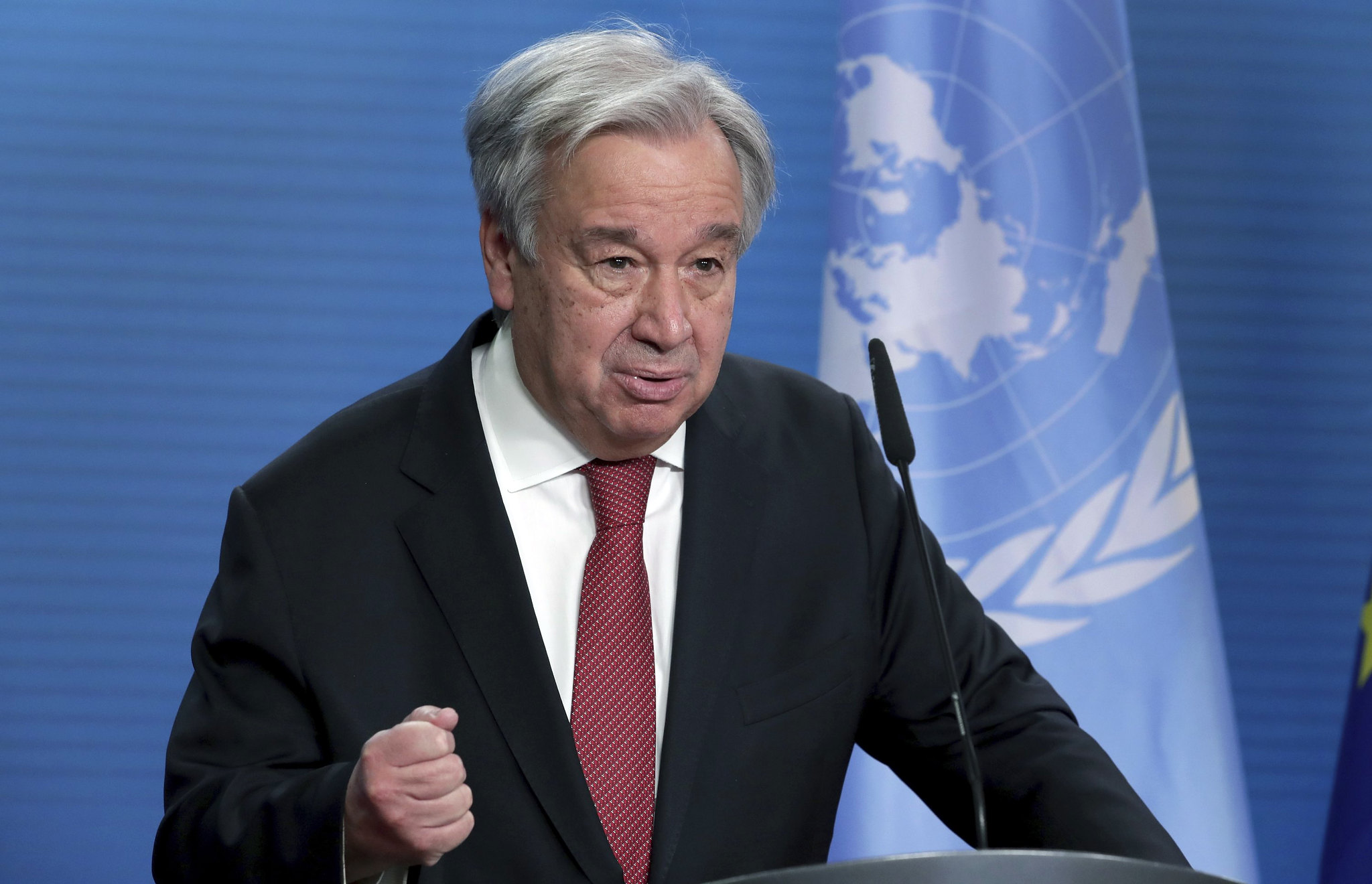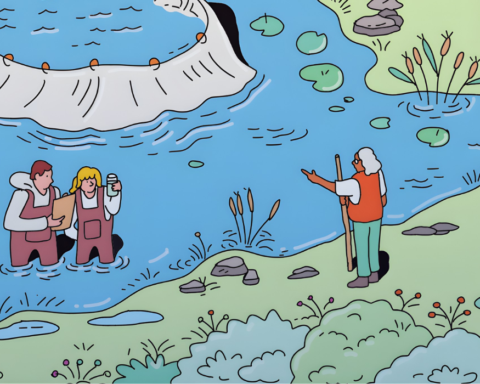UN Secretary-General António Guterres has added a powerful voice to a growing movement to ban fossil fuel advertising, as efforts to rein in misleading oil and gas campaigns inch forward in Canada.
“Many governments restrict or prohibit advertising for products that harm human health, like tobacco,” Guterres said in a speech on Wednesday at the American Museum of Natural History in New York City. “I urge every country to ban advertising from fossil fuel companies. And I urge news media and tech companies to stop taking fossil fuel advertising.”
Guterres’s latest rallying cry came amid a somber forecast about the planet’s future. According to the UN’s World Meteorological Organization (WMO), there is an 80% chance that the average global temperature will exceed 1.5°C above pre-industrial levels for at least one of the next five years. The new forecast from the WMO suggests that the speed at which the planet is warming has accelerated since 2015, when there was a near zero chance of such an event occurring. Last year was the warmest year on record.
Guterres’s comments on Wednesday took aim at the fossil fuel industry, “the godfathers of climate chaos,” and echo efforts spearheaded by the Canadian Association of Physicians for the Environment (CAPE), which has been pushing for a tobacco-style ban on misleading fossil fuel advertising since 2022. The organization’s campaign is the basis of a private member’s bill presented by New Democrat MP Charlie Angus, which has received significant backlash from oil and gas proponents.
CAPE has been critical of the lengthy and opaque investigation processes of Ad Standards and the Competition Bureau, which have fielded various greenwashing complaints in recent years. In January, the Competition Bureau launched an investigation into complaints of “deceptive marketing practices” by Enbridge Gas. CAPE, Environmental Defence, and Ontario Clean Air Alliance and a group of residents allege that the company is using false and misleading representations by telling customers that gas is the most cost-effective way to heat their homes and suggesting that it is “clean energy” and “low carbon.” Natural gas is primarily made of methane, a potent heat-trapping greenhouse gas.
In a separate case last month, CAPE released the results of an interim decision by Ad Standards, a non-profit regulatory organization, that found an advertising campaign claiming that liquid natural gas (LNG) from British Columbia “will reduce global emissions” to be “misleading” and “distorted the true meaning” of scientific statements.
The decision by the organization’s Standards Council responded to various public complaints regarding bright-green ads by a group called Canada Action that have covered newspapers, transit shelters, buses and radio spots in British Columbia and Ontario.
“Council unanimously determined that the evidence provided by the advertiser was insufficient to support the absolute claim that BC LNG will reduce global emissions,” the interim decision states. Rather, it notes, the evidence submitted suggests LNG “could reduce emissions if only taking into consideration the off setting of transitioning from coal to gas.” It said that some members of the Council took issue with the bright-green background colour on the ads “that was used to emphasize an environmental benefit that liquefied natural gas does not truly have.”
Ad Standards reached the interim decision in January, but it was made public only after CAPE received the leaked results from an anonymous source.
“These ads are textbook cases of greenwashing, right down to the colour of the ads,” said Dr. Melissa Lem, a Vancouver family physician and the president of CAPE. “We felt compelled to make this decision public because people in Canada have the right to not be misled about LNG’s harmful impacts on the climate, the environment and our health.”
Ad Standards, in turn, criticized the release of the interim decision, saying that it was not final and that the advertiser had appealed it. As a result, Ad Standards said it “will not be able to report the results of that decision publicly, or to comment further.”
Canada Action describes itself as a “grassroots non-profit organization that supports Canada’s natural resource sector.” Its campaigns have included messages such as “Domestic oil doesn’t compromise human rights” and “The world needs more Canadian energy.” Public filings show that it spent more than $5 million on advertising between 2017 and 2022. It’s not clear where all of its funding comes from, although The Narwhal reported in 2020 that $100,000 came from ARC Resources, a West Coast oil and gas company.
In its defence before Ad Standards, Canada Action reported that “as a result of coal to gas switching, 500 million tonnes of CO were prevented from entering the atmosphere since 2010” and that so-called natural gas emits up to 50% less carbon dioxide at its end use. It also presented studies showing how natural gas “can significantly reduce GHG emissions” when replacing coal in Asia. The International Energy Agency has previously reported that 500 million tonnes of CO2 were avoided from 2010 to 2019 by switching from coal to gas. But Ad Standards noted that Canada Action had not provided evidence of the expected increase of LNG demand.
In his speech, UN Secretary-General Guterres doubled down on his fiery rhetoric about global warming, warning that the world continues to play “Russian roulette,” while stressing that meeting the 1.5°C target is still possible.
“It is a disgrace that the most vulnerable are being left stranded, struggling desperately to deal with a climate crisis they did nothing to create,” he said. “We cannot accept a future where the rich are protected in air-conditioned bubbles while the rest of humanity is lashed by lethal weather in unlivable lands.”







